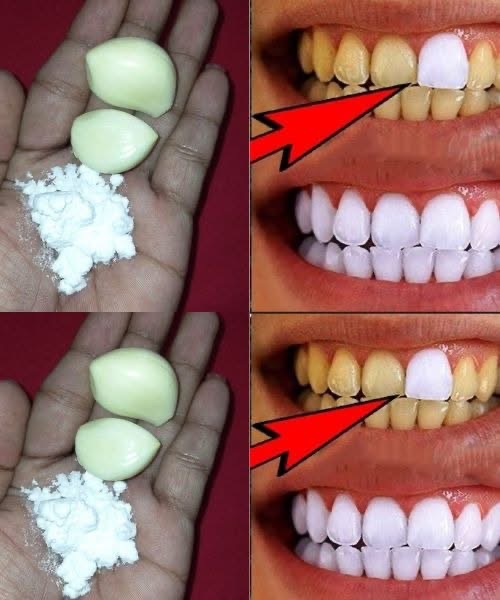### Garlic: A Surprising Friend for Making Teeth Whiter
While garlic is renowned for its bold flavor and numerous health benefits, including its powerful antimicrobial properties and potential to boost the immune system, it may come as a surprise that garlic can also be an unexpected ally in the pursuit of whiter teeth. Though garlic isn’t typically associated with oral care, it contains certain compounds that can play a role in maintaining oral hygiene and promoting a brighter smile.
### How Garlic Can Help Whiten Teeth
1. **Antibacterial Properties**:
Garlic is rich in allicin, a compound with potent antibacterial and antifungal properties. These properties can help fight harmful bacteria in the mouth that contribute to plaque buildup, gum disease, and tooth discoloration. By reducing bacterial growth, garlic may indirectly help prevent the yellowing and staining of teeth.
2. **Natural Bleaching Effect**:
Although there is no direct evidence to suggest that garlic can bleach teeth in the way commercial whitening products do, its antibacterial and anti-inflammatory effects might help reduce the staining caused by food particles and plaque. By cleaning the mouth and preventing the buildup of harmful substances, garlic could help maintain a cleaner, whiter appearance over time.
3. **Improved Oral Health**:
Garlic has been linked to improved overall oral health. By reducing plaque and gum inflammation, garlic contributes to healthier gums, which in turn helps teeth stay cleaner and whiter. Healthy gums can make your teeth appear brighter since inflamed or diseased gums can make teeth look dull and discolored.
4. **Allicin’s Effect on Enamel**:
Some believe that garlic’s allicin can help in breaking down some of the compounds that stick to teeth and cause staining. While this effect is minimal compared to traditional teeth-whitening treatments, garlic’s properties may assist in maintaining cleaner enamel, preventing buildup that leads to discoloration.
### How to Use Garlic for Whitening Teeth
1. **Garlic and Salt Paste**:
– Crush a small clove of garlic and mix it with a pinch of salt to create a paste.
– Apply this mixture to your teeth with a soft toothbrush or your finger, gently rubbing it on the surface of your teeth for a few minutes.
– Rinse thoroughly with water.
– Use this remedy sparingly (no more than once or twice a week) to avoid any potential irritation or damage to your gums.
2. **Garlic Oil Mouth Rinse**:
– Mix a drop of garlic oil with warm water.
– Swish it around in your mouth for 30 seconds to 1 minute, ensuring it makes contact with all your teeth.
– Spit out the solution and rinse your mouth with clean water.
– This method may help improve oral hygiene, reduce plaque, and keep your teeth cleaner and whiter over time.
### Tips for Using Garlic Safely
– **Use Moderately**: Garlic’s strong flavor and potency can be harsh if overused, especially for your gums. Make sure to use garlic-based oral remedies sparingly.
– **Maintain Regular Oral Care**: Garlic should not replace regular brushing, flossing, and professional dental care. Use it as a supplementary measure alongside your regular oral hygiene routine.
– **Avoid Overuse**: Excessive use of garlic on your teeth can lead to irritation of the gums or enamel erosion, so always be cautious.
### Conclusion
While garlic may not be a miracle teeth-whitening solution, its antibacterial, anti-inflammatory, and oral health-promoting properties make it a surprising yet valuable ally in maintaining a cleaner, healthier mouth. Regular use of garlic can help reduce plaque buildup and prevent the stains that dull your teeth. Combined with proper brushing and regular dental care, garlic can help support your efforts to keep your teeth shining brightly. Always remember that natural remedies like garlic should be used in moderation and as part of a comprehensive oral hygiene routine.
